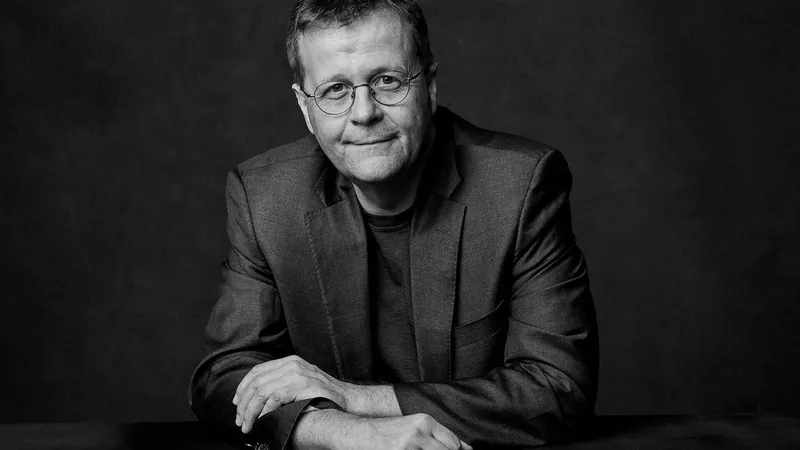
The Extraordinary Journey of Christian Bök’s Xenotext: A Poem for Eternity
2025-08-03
Author: Nur
An Audacious Literary Experiment
For over 25 years, Canadian poet Christian Bök has embarked on one of the most daring artistic endeavors: encoding a poem into the genome of an extremophile bacterium, one that can potentially survive the end of humanity. This project, titled The Xenotext, involves a strain called Deinococcus radiodurans, known for its incredible resilience against extreme conditions. This poem isn't just a literary work; it’s designed to replicate itself, living on Earth long after we are gone.
Poetry as Humanity's Legacy
In his vision, Bök positions The Xenotext alongside monumental works like the Homeric epics, believing it serves as a powerful testament to human achievement. This project challenges our understanding of language and art, urging future civilizations to view his encoded poem as one of the last remnants of our culture. In doing so, Bök raises fascinating questions about the intersection of poetry and the genetic code, contemplating what poetic messages might be embedded in the origins of life itself.
The Genesis of The Xenotext
Bök's fascination with infusing poetry into the genetic realm sprang from his previous success with Eunoia. Stimulated by articles on extraterrestrial communication and bioscience, he envisioned a poetic legacy that transcends time. Instead of waiting for alien intelligence to deliver poetic messages across galaxies, he aimed to create his own—nesting art in the very fabric of life.
A Message to the Stars
Drawing parallels with the Voyager probes—humanity's first messengers meant to outlast the sun—Bök reflects on what The Xenotext could mean for future extraterrestrial civilizations. If humanity were to vanish, our legacy would likely be reduced to pollution and fossil records. In contrast, Bök desires to leave amidst the rubble a piece of art—an archive representing the best of what we were.
Poetry's Role in Civilization
The Xenotext also addresses the waning ambition of contemporary poetry. Historically, poetry has been pivotal to cultural transmission, yet today, many poets seem hesitant to engage in grand narratives or epic themes. Bök's urgency underscores a collective cultural retreat from using poetry to shape civilization, an unsettling trend that calls for a resurgence of poetic heroism.
Navigating Challenges of Creation
Creating The Xenotext was daunting, as Bök had to write poems under complex biochemical constraints, using a unique cipher system that paired letters in a mutually referential way. This intricate process led to the creation of a dialogue-filled sonnet that poignantly speaks to the themes of love and loss, all while adhering to the rigid structure of genetic encoding.
The Poetry of Life Itself
Bök argues that the language of life—its genetic code—could be seen as poetry in its own right. With only 64 codons forming the lexicon for all living beings, the creativity required to flourish under such constraints is something poets strive to emulate. The challenge lies not just in words, but in shaping existence itself.”},{




 Brasil (PT)
Brasil (PT)
 Canada (EN)
Canada (EN)
 Chile (ES)
Chile (ES)
 Česko (CS)
Česko (CS)
 대한민국 (KO)
대한민국 (KO)
 España (ES)
España (ES)
 France (FR)
France (FR)
 Hong Kong (EN)
Hong Kong (EN)
 Italia (IT)
Italia (IT)
 日本 (JA)
日本 (JA)
 Magyarország (HU)
Magyarország (HU)
 Norge (NO)
Norge (NO)
 Polska (PL)
Polska (PL)
 Schweiz (DE)
Schweiz (DE)
 Singapore (EN)
Singapore (EN)
 Sverige (SV)
Sverige (SV)
 Suomi (FI)
Suomi (FI)
 Türkiye (TR)
Türkiye (TR)
 الإمارات العربية المتحدة (AR)
الإمارات العربية المتحدة (AR)